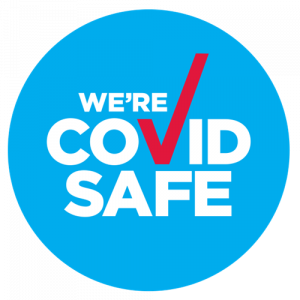Dysphagia is discomfort or difficulty in chewing or swallowing. Anyone can have a swallowing problem at any stage of life.
What difficulties are associated with Dysphagia?
There are a number of difficulties associated with Dysphagia and can include anything such as:
- Difficulty sucking
- Difficulty drinking
- Difficulty chewing
- Difficulty swallowing
- Difficulty controlling saliva
- Food/liquids spilling from mouth
- Difficulty taking medications
- Strong coughing following a swallow
- Gagging
- Choking
- Reflux
Types of Dysphagia?
There are different types of Dysphagia. The type of Dysphagia can be determined by a Speech Pathologist.
- Oral Dysphagia is when there is a difficulty with the lips and/or tongue that affect a person’s ability to chew, move food around in the mouth and form a ball of food and drink ready for swallowing.
- Pharyngeal Dysphagia is when there is a difficulty or discomfort located in the throat. This may mean food or drink may fall into the person’s throat before they are ready to swallow and food or drink going down the wrong way. In some cases, food or drink can go into the lungs. This can cause what is called Aspiration Pneumonia which can be fatal.
- Oesophageal Dysphagia is when there is any pain or discomfort after a swallow. This means that food may be getting stuck in the tube on the way to your stomach.
It is also important to note that difficulties can also occur before the food goes into the mouth and these include things such as difficulty opening packets, cutting food or bringing food to the mouth with or without utensils etc.
How can a Speech Pathologist help?
A Speech Pathologist will be able diagnose the type of Dysphagia based on the difficulties reported and observed.
It is important to identify Dysphagia early to ensure safety and wellbeing while consuming food and drink and also to identify if there is any risk of Aspiration Pneumonia occuring.
Speech Pathologists also work very closely with other professionals such as doctors and dieticians for complete management of Dysphagia.
What will the appointments involve?
Initial appointments will involve gathering as much information as possible about the difficulties the person is experiencing. Following this, the therapist will then do some direct assessment tasks looking at the nerves and muscles in and around the face that are involved in eating.
This would be followed by food and drink trials to observe any difficulties with different consistencies (e.g. thin and thick liquids, puree, biscuits etc.).
Once the difficulties have been identified, recommendations can be put in place. These may include things such as:
- Changing food textures
- Avoiding food textures
- Changing thickness of drinks
- Avoiding certain drinks
- Postural changes/adjustments
- Swallowing techniques/exercises
Contact Harrison Speech Pathology if you would like to speak with a Speech Pathologist regarding booking in a Dysphagia assessment.





